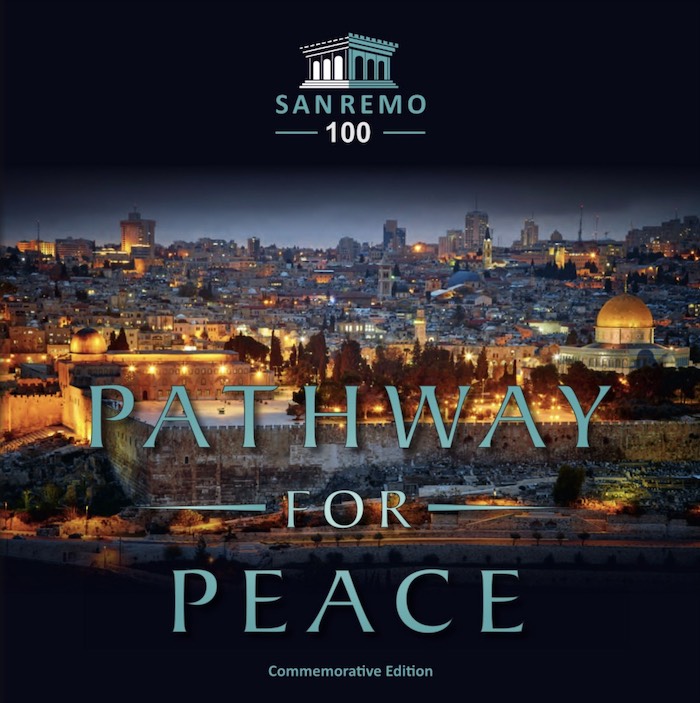the san remo declaration
April 1920
Agreement by the victors of WW1 that former Ottoman colonies be granted independence
as Arab or Jewish countries, under the guidance and care of Britain or France
The victorious Allied Powers of the First World War - Britain, France, Italy and Japan, along with the United States - met in Versailles for the Paris Peace Conference throughout 1919 and redistributed German imperial territories in Europe and across the world. How to apportion the Ottoman colonies was postponed until talks resumed at San Remo on the Italian Riviera in April 1920.
The great empires were committed to preparing indigenous peoples for self-government in due course, according to the system of "mandates" created by the newly-formed "League of Nations" (precursor to the United Nations).
In Paris, 1919
In Paris, the Arab and Jewish delegations had each presented their claims for homelands, the official representatives of both groups recognising each others' claims as compatible, side-by-side.
France and Britain were each defending their interests in the Middle East, so their peacetime negotiations took precedence over deliberately ambiguous promises made to both Arabs and Jews in wartime. Even so, the Allied Powers all agreed to the core text of the Balfour Declaration for a Jewish homeland in Palestine, incorporating it into their Resolution. Having been agreed by sovereign nations with legitimate claims, it thus became binding international law.
At San Remo, 1920
At the reconvened peace conference in April 1920, Britain was appointed as the Mandatory Power for Palestine (Jordan and Israel) and for Mespotamia (Iraq), and France for Syria and Lebanon. But despite the significance of this Resolution as the solid foundation for the future State of Israel under international law, its text was preserved only in the official minutes of the negotiations, not published separately. It would take decades for its importance to be recognised!
The League of Nations and the victorious great powers of the time were the effective global arbiters of international law of the time. Their decision to recognise the intent of the Balfour Declaration placed that little letter written three years before in prime place as a cornerstone for hopes of peace in the Middle East.
One hundred years on
The actual centenary of the San Remo Declaration could not be held "in person" in 2020 due to COVID restrictions. However, later that year, a team from Love Never Fails ministries organised a free Zoom webinar to mark the centenary year. This included a series of 5-minute pre-recorded introductory videos by expert speakers. Topics included:
- Christian peacemakers in the land today,
- International law relating to Israel's proposed "annexation" of the West Bank,
- Bible promises,
- Jewish/Palestinian right of return,
- British history both negative and positive.
Some of these short talks are included on this page. You can visit the rest of the content for the webinar on the Pathway For Peace Youtube channel
The San Remo Resolution became almost a forgotten step in the post-WW1 peace process, yet historically it was a vital part of the intended pathway to a peaceful future for the entire Middle East. It followed naturally from the Balfour Declaration and led directly to the British Mandate for Palestine.
ALL THE INFORMATION IN ONE PLACE...
Due to COVID lockdown restrictions, the San Remo Resolution centenary could not be celebrated in person as the Balfour Declaration had been. Even so, an attractive coffee-table booklet titled Pathway For Peace was published by Love Never Fails in time for the actual centenary in April 2020. This educational guide features seven concise contributions by historians, international lawyers and other public figures, explaining the background, significance, and ongoing relevance of the San Remo Resolution.
